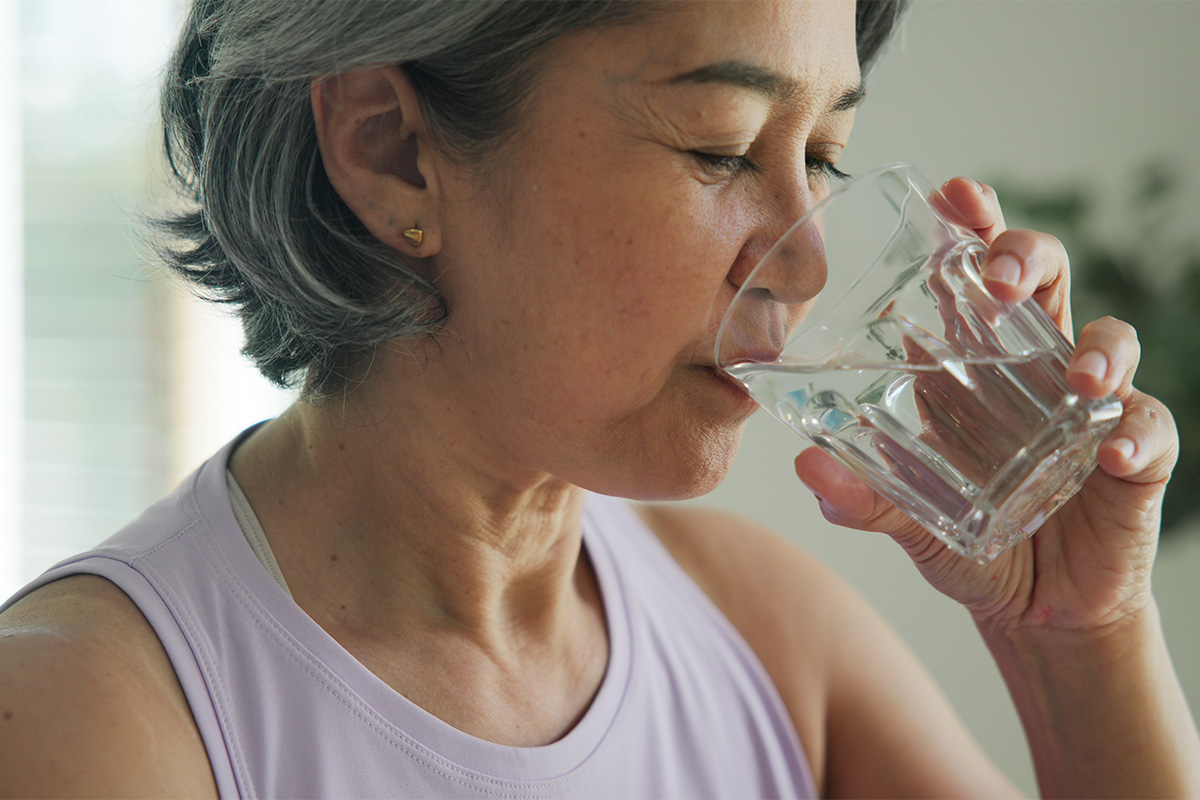TAG
Symptoms
Blog Posts



9 Tips for Avoiding Falls for People with Parkinson’s
Preventing falls is a safety concern, but gaining a good grasp of the subject will also help maintain confidence, independence, and quality of life.


Swallowing and Parkinson’s: Why It Matters and What You Can Do
Parkinson’s disease can affect swallowing. These are the signs to watch for, potential health risks, and effective treatments to keep mealtimes safe and enjoyable.


Thriving in the Workplace with PD
Working with Parkinson's disease may present challenges. This guide offers legal rights, support tools, and strategies for productivity and empowerment at work.


Staying Hydrated with Parkinson’s: What To Know
Staying hydrated is a critical part of managing Parkinson’s symptoms and boosting overall well-being. Here’s what to know.


Freezing of Gait, Explained
Freezing of gait refers to the temporary inability to move the feet and can be one of the more debilitating side effects of Parkinson’s. Learn more here.


Top Walking Aids for PD [And Benefits of Using Them]
Walking aids are a fantastic option for people with PD, allowing them to maintain independence and lead a more fulfilling life. Here are our top recommendations for walking aids.


Are Parkinson’s and Hearing Loss Connected?
Researchers are just beginning to understand the connection between PD and hearing loss, with initial studies suggesting the two are related.


Is Parkinson’s A Disability?
Parkinson’s is considered a disability by federal and state laws. Here’s what that means for symptom management and disability support.


Managing Fatigue with Parkinson’s Disease
Nearly 50% of people living with PD will experience fatigue. Here’s what to know about fatigue and Parkinson’s and how to manage symptoms.


Vocal Exercises for PD: Benefits & Resources
Parkinson’s disease can have a significant impact on speech and communication. Here are resources and vocal exercises to help improve speech issues.


Exploring the Link Between Pneumonia & PD
Pneumonia is the leading cause of death and hospitalization in people living with PD. Here’s what we know about causes and treatments.


Young-Onset Parkinson's Disease: Causes, Symptoms, Treatment
Young-onset Parkinson's disease impacts roughly 4% of those with Parkinson’s disease. Here are common symptoms, treatments, and resources.


Depression & Parkinson’s: Causes, Symptoms, and Treatments
Depression is a common side-effect of PD. Here are the causes, symptoms, and treatments for depression in people living with Parkinson’s.


How to Manage Pain with Parkinson's Disease
Chronic pain is very common for people living with PD, but there are many effective ways to manage it. Learn all about how PD impacts pain.


Do You Need A Movement Disorder Specialist for Parkinson’s?
A movement disorder specialist (MDS) is critical to your Parkinson’s care team. Learn more about the roles and treatments that they offer.


Guide to Non-Motor Symptoms of Parkinson’s Disease
Parkinson’s is known as a movement disorder. However, non-motor skills are sometimes equally, if not more, affected for people with PD.


Guide to Vision Issues in Parkinson’s: Symptoms & Treatments
Vision issues are common in people with Parkinson’s, but fortunately, most are treatable. Learn about the symptoms and treatments here.


Vibration Therapy for Parkinson’s Disease: How it Works
Early research indicates that vibration therapy may be effective for PD symptoms. Learn more about what it is and where it’s headed.


Hand Exercises to Alleviate Parkinson’s Symptoms
A common symptom of PD is tremors, rigidity, or bradykinesia in the hands. These daily exercises can help improve hand dexterity and relieve symptoms.


What’s Palliative Care for Parkinson’s? [And Why It Matters]
Palliative care is an ongoing and comprehensive treatment plan. The goal of palliative care is to improve quality of life for those with Parkinson’s disease.


Understanding Parkinson’s and Sleep Apnea
It’s very common for people with PD to experience sleep apnea. Thankfully, there is plenty of research to guide you toward a better night’s rest.
Videos

Donate Today,
Change Lives Forever
PCLA is powered by generous contributions from people like you.
Please consider donating today so we can continue to provide critical support to those impacted by Parkinson’s.













